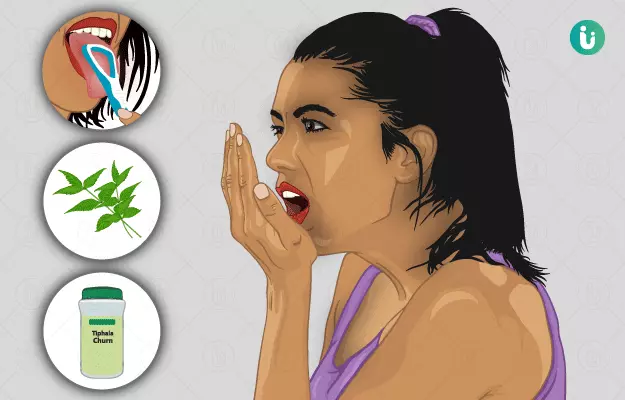Halitosis is a common condition marked by unpleasant breath or presence of foul odour from mouth. It may be caused due to a variety of oral and non-oral conditions. However, according to an estimate, 90% cases of bad breath are due to oral conditions.
Although there are no separate chapters on mukhaswasthya or oral hygiene in Ayurvedic texts, Ayurveda has stressed the importance of oral health by including dental hygiene–promoting activities such as pratisarana (massaging the gums and teeth) and dantadhavana (brushing the tooth) in dinacharya (daily routine).
Ayurveda describes oil pulling techniques such as kavala and gandusha as the major cleansing procedures for halitosis treatment. Herbs like cinnamon, cardamom and clove are recommended to improve dental health and treat halitosis. Ayurvedic formulations like triphala (a combination of amalaki [Indian gooseberry], vibhitaki [belleric myrobalan], and haritaki [chebulic myrobalan]) churna (powder) are used to reduce bad breath and treat oral conditions like bleeding gums that cause bad breath. Practising healthy oral habits like gargling, brushing and flossing regularly prevents halitosis and also maintains oral health.








































